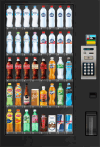Evaluating campaign concepts aimed at replacing sugar-sweetened beverages with water
- PMID: 39043432
- PMCID: PMC11729451
- DOI: 10.1002/hpja.903
Evaluating campaign concepts aimed at replacing sugar-sweetened beverages with water
Abstract
Issue addressed: The study addresses the global health concern of sugar overconsumption, particularly focusing on the prevalence of sugar-sweetened beverage consumption among young people.
Methods: The study tested three different health promotion campaign concepts, designed to reduce sugar-sweetened beverage intake and promote water consumption as a healthier alternative. A total of 402 young adults (18-29) were recruited from a university campus and an online panel. Participants were randomly assigned to view one of three campaign images: one advocating for substituting sugar-sweetened beverages with water, and two exclusively promoting water consumption. These images were assessed through an online survey, which included questions on emotional response, salience, attitudes and intentions towards various beverages.
Results: Participants exposed to the campaign emphasising the benefits of water showed a greater intention to increase water consumption and reduce both sugar- and non-sugar-sweetened beverages compared with the other groups. There were no significant differences observed for the beverage choice task across the campaigns.
Conclusions: The findings suggest that messaging focusing on the benefits of water holds promise in encouraging healthier beverage consumption intentions among young adults. The lack of significant differences in the beverage choice task across the campaigns indicates a need for further research to explore long-term behaviour change effects. SO WHAT?: By highlighting the benefits of water consumption, campaigns may have the potential to positively influence beverage choices and promote healthier habits. Continued research in this area can provide valuable insights for developing more impactful interventions aimed at reducing sugar-sweetened beverage consumption.
Keywords: choice; health promotion campaign; intentions; sugar‐sweetened beverages; water.
© 2024 The Author(s). Health Promotion Journal of Australia published by John Wiley & Sons Australia, Ltd on behalf of Australian Health Promotion Association.
Conflict of interest statement
The authors declare no conflicts of interest.
Figures


References
-
- Tahmassebi JF, BaniHani A. Impact of soft drinks to health and economy: a critical review. Eur Arch Paediatr Dent. 2020;21(1):109–117. - PubMed
-
- Centers for Disease Control and Prevention . Centers for Disease Control and Prevention. Get the Facts: Sugar‐Sweetened Beverages and Consumption. 2022 [cited 2024 Feb 2]. Available from: https://www.cdc.gov/nutrition/data‐statistics/sugar‐sweetened‐beverages‐....
Publication types
MeSH terms
LinkOut - more resources
Full Text Sources

